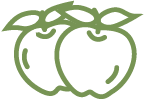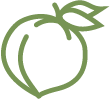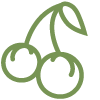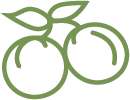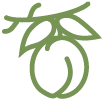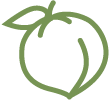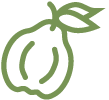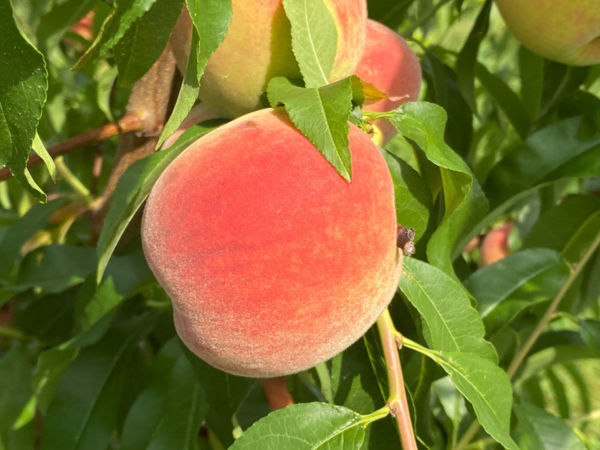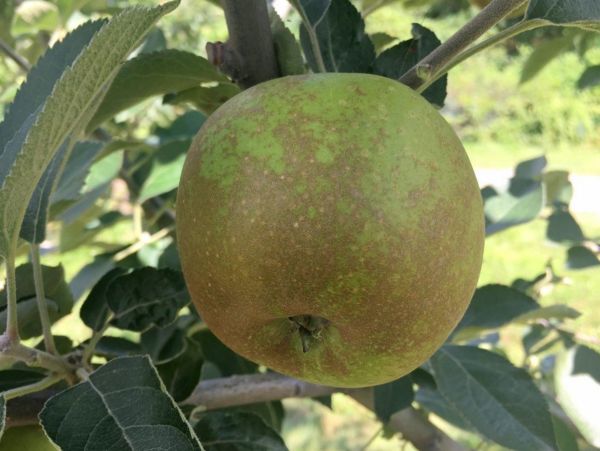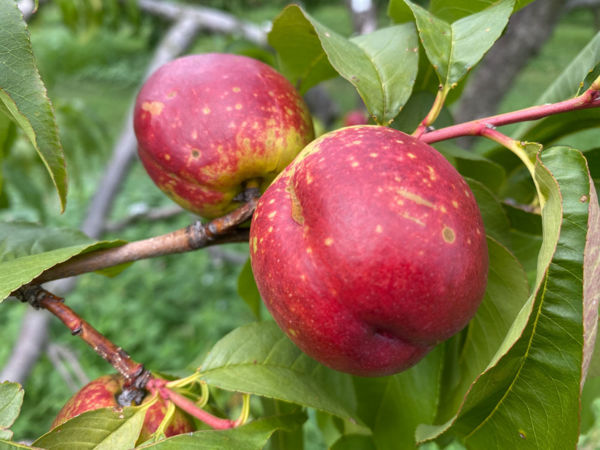An attractive, highly disease-resistant apple, ideal for organic growers.
Fruit Tree Diseases & Pests: Basic Care & Prevention
While the different species and even the different varieties of fruit tree each have their own particular sensitivities, there are some generalizations that can be made about all fruit trees when it comes to preventative care:
- Your trees will need to be protected from wildlife (deer and rodents) and mechanical damage (mowers, weed eaters, etc.).
- A tree that is subject to injury, drought, lack of sun, or poor soil will be weakened by these conditions. Weak trees are more susceptible to disease and less able to recover from injury.
- Removing organic debris from the growing area will also remove a major disease vector.
- Thoughtful annual pruning is essential to maintaining the health of any fruit tree.
- Trees want to be looked at! Inspect your trees regularly, especially during the growing season. Early detection of any disease or pest damage will improve your chances of being able to successfully resolve the issue.
Disease-Resistance and Susceptibility
One of the easiest preventative steps is to plant varieties that are disease resistant. When starting an orchard, it is advisable to contact your local university cooperative extension or another local grower to find out what are the most prevalent disease and pest issues in your area. You can then look for varieties that are resistant to diseases you wish to avoid. If a tree has known resistances or susceptibilities, we have listed these on its variety page. Natural disease resistance is an especially important consideration if you are planning on organic cultivation.
Rootstocks
Growing trees on disease-resistant rootstocks will help prevent a range of problems. Although a fireblight-resistant rootstock does not make the whole tree fireblight resistant, it will protect the root system from this disease. Similarly, there are some issues, such as replant disease, that affect only the root system. In short, resistant rootstocks play a huge role in tree health, but they are not the solution to all a grower’s problems.
Chemicals
As mentioned above, your best resources are often other local growers or the local cooperative extension. Many of the chemical products that larger orchards use are not available to home growers, but if you are a backyard grower who just wants a basic fungicide to apply to their peach tree, your local garden supply store should be able to provide plenty of guidance.
University Resources
America’s larger horticultural research programs also offer lots of literature to the public. The following are very useful resources:
Featured Products
A few things we're loving right now...
A full-flavored, freestone white peach.
One of America's oldest apples, good for storage, baking, and cider.
A widely-grown, large, yellow-fleshed nectarine.

